Problem due to shortsighted policies of previous regimes
By Jaliya Wijeyekoon
Sri Lanka would have remained a dismembered country today had not the
brutal LTTE savagery been warded off by our valiant Security Forces and
restored peace under the deft political leadership of President Mahinda
Rajapaksa.
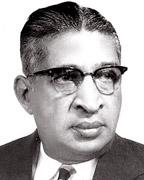 |
| Dudley
Senanayake |
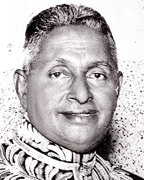 |
| Sir John
Kotelawala. |
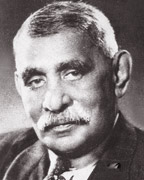 |
| D.S.
Senanayake |
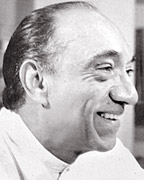 |
| J.R.
Jayawardene |
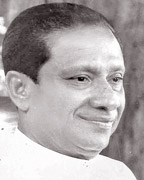 |
| Ranasinghe
Premadasa |
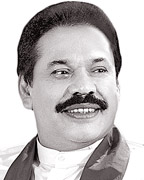 |
| Mahinda
Rajapaksa |
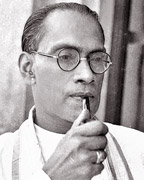 |
| S.W.R.D
Bandaranaike |
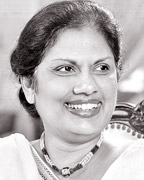 |
| Chandrika
Kumaratunga |
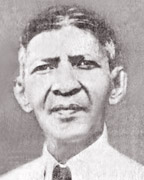 |
| S.J.V.
Chelvanayagam |
The LTTE's substitution of terrorism for peaceful means of resolving
conflicts had caused boundless misery by driving thousands of people
homeless and limbless.
The United National Party and Sri Lanka Freedom Party had governed
the country successively for 65 years since Independence, under 11
leaders.
The founder of the United National Party D.S. Senanayake was the
greatest visionary who commanded the respect of all communities. He
efficiently tackled the minority communities, accommodating most of the
leaders in his first Cabinet. Senanayake realised that ethnic tension
was simmering under the carpet and his program of work was aimed at
uniting both communities in the country with his colonisation schemes,
intermingling the Sinhalese and Tamils and allowing them to live in
harmony.
Senanayake died unexpectedly, falling off the horseback during his
regular exercises at Galle Face Green and his son Dudley Senanayake
became Prime Minister. Dudley continued the same policies introduced by
his father, accommodating minority community leaders in his Cabinet.
Dudley Senanayake was re-elected Prime Minister at the next election
with a two-third majority, but didn't continue for long as his health
was poor and also he had constant problems with his Cabinet colleague,
Sir John Kotelawala.
Dudley stepped down from politics and Sir John became the Prime
Minister. Sir John wanted the Tamil community's support and in Jaffna he
agreed to make both Sinhala and Tamil official languages in the country.
That was the stand taken by the Communist and Sama Samaja parties too at
that time. However, there was severe resistance to this idea from
various quarters in society; The Maha Sangha was against making Tamil an
official language.
S.W.R.D. Bandaranaike had broken away from the UNP and formed his own
party, the Sri Lanka Freedom Party. He was gathering public support and
he managed to mobilise the masses effectively against the UNP which was
rapidly becoming unpopular under Sir John's leadership. At the 1956
general election Bandaranaike announced that he would make Sinhala the
official language of the country within 24 hours which helped him defeat
the ruling UNP comprehensively.
However, it is believed that this action by Bandaranaike led to a
number of grievious problems in the country and the beginning of
communal disharmony. Subsequent developments in Tamil political circles
proved that the beginning of the issue may have been the Sinhala only
policy of the Bandaranaike government.
Bandaranaike immediately realised the gravity of the problem and had
a series of discussions with Tamil political leaders to pacify them.
Finally, Bandaranaike had to sign a pact with S.J.V. Chelvanayagam with
regard to the Reasonable use of Tamil instead of Sinhala in the Northern
and Eastern Provinces and it was known as the Bandaranaike-Chelvanayagam
(BC) Pact. The main Opposition, the United National Party heavily
objected to this move and went to the extent of making a peace march to
the Temple of the Tooth, the Dalada Maligawa in Kandy against this pact.
They mobilised the masses against the government over this issue.
The Maha Sangha who supported Bandaranaike to win the elections were
also against this pact. Bandaranaike realised that it was politically
suicidal to antagonise the Maha Sangha and tore the
Bandaranaike-Chelvanayagam Pact into pieces and apologised to the Maha
Sangha.
The grievances of the Tamils worsened with the passage of time.
When Dudley Senanayake formed a government in 1965, he allocated a
top ministry to a Tamil political leader, Thiruchelvem and garnered the
Tamil community support. However, the grievances of the Tamils were
escalating with regard to the administration and Dudley Senanayake and
Federal Party Leader S.J.V. Chelvanayagam signed the D-C Pact
introducing District Councils mainly to devolve administrative power to
the Tamils in the North and the East.
The main Opposition, the SLFP along with the LSSP and CP objected to
the DC Pact, saying that undue power would be vested with the Tamil
community due to this pact. Since the Tamil political leaders supported
Dudley's government, Opposition parties came out with the slogan Dudlige
Bade Masala Wade and resisted heavily against the pact. Finally, Dudley
was forced to withdraw it, resulting in Thiruchelvem leaving the
government and Tamil people's aspirations not being fulfilled.
Dudley's government was swept out of power in 1970 and Sirimavo
Bandaranaike formed a stable government with the support of the LSSP and
CP. It is doubtful whether she took any special measures to satisfy the
aspirations of the Tamil community. Sirima's government introduced the
first republican Constitution in 1972 architectured by Constitutional
Affairs Minister Dr. Colvin R. de Silva who did away with the Section
29A of the Soulbury Constitution which safeguarded the rights of the
minorities. This dealt a death blow on the Tamil community who were
already having some grievances.
J.R. Jayewardene, the astute politician of the era took over the
reins of the country in 1977 and implemented several measures to assuage
the fear and apprehension of the Tamil Community. A few of them were
giving parity of status to the Tamil language, introduction of District
Development Councils, (DDC) Constitutional provision for fundamental
rights, which are justiceable and finally the 13th Amendment to the
Constitution for devolution of power to the periphery.
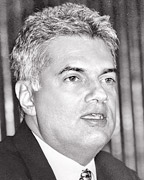 |
| Ranil
Wickremesinghe |
Despite the progressive nature of the features in the context of
national cohesion, JR's regime failed to muster support from the
Opposition. Sirimavo Bandaranaike mobilised the masses against JR's
moves which resulted in an unhealthy situation in the country in 1987.
The intransigence and rigidity on the part of the Tamil political
parties, partly dictated by their fear of terrorist groups, stalled
compromise and consensus which would have thawed the situation.
Provincial Councils, a by-product of the 13th Amendment could be
regarded as the first measure in the devolution of power to the
periphery within a geographically much smaller country such as Sri
Lanka.
Had the then Opposition parties supported the UNP government at the
crucial hour the 30-year terrorism could have been averted and the
country made secure.
Far from giving flesh and blood and making the North East Provincial
Council a viable body, its Chief Minister Vardharajah Perumal had his
maiden Unilateral Declaration of Independence and consequently a grand
opportunity for reconciliation, reappraisal and readjustment was lost.
During Ranasinghe Premadasa's tenure of office, he took exception to
the conventional practice and had face-to-face discussion with members
of the high command of the LTTE.
President Premadasa's honeymoon with the LTTE proved disastrous to
the country. It's modus operandi was to make the LTTE his cat's paw to
banish the IPKF back to India by supplying sophisticated military
hardware to the LTTE. In the end this proved counter-productive.
Chandrika Kumaratunga also had peace negotiations with LTTE
representatives and spent a large amount of money on the Sudu Nelum
movement with no positive results being reaped and she herself being
badly victimised.
Ranil Wickremesinghe as the Prime Minister signed a controversial
Ceasefire Agreement with Prabhakaran through which he expected to
resolve the problem with international support. The LTTE was weakened to
some extent with the Ceasefire Agreement which led to splits in the
outfit, but he could not do much about it as his government was
dissolved unexpectedly by the Executive President. No support was
extended to Wickremesinghe by the SLFP in his endeavour to solve this
problem.
Mahinda Rajapaksa became President in 2005 and he too tried to
address this issue through negotiations at the outset. Far from using
democratic means to resolve the Tamil grievances, the monolithic LTTE
began its bloodthirsty campaign and 30-years of terrorism was militarily
crushed in 2009 under the stewardship of President Rajapaksa.
However, a complex situation has arisen today due to the domestic
issue of Tamil grievances being internationalised and forces hostile to
Sri Lanka trying to dictate terms to the legally and constitutionally
elected government of Sri Lanka "to do this or that" according to their
whims and fancies.
It's sad due to the archetypal ding-dong bell between the government
and the Opposition the Tamil issue remains in the "order book" without
being disposed of. |


